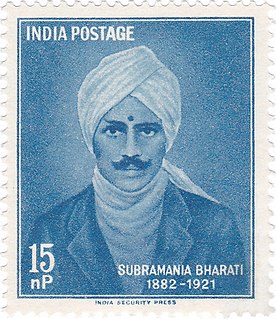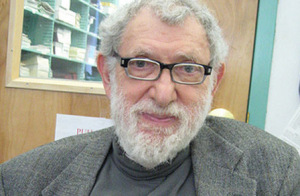A Quote by Mahatma Gandhi
If the poet spun for half an hour daily, his poetry would gain in richness.
Related Quotes
Loneliness is necessary for pure poetry. When someone intrudes into the poet's life (and any sudden personal contact, whether in the bed or in the heart, is an intrusion) the poet loses his or her balance for a moment, slips into being what he or she is, uses his or her poetry as one would use money or sympathy. The person who writes the poetry emerges, tentatively, like a hermit crab from a conch shell. The poet, for that instant, ceases to be a dead person.
I get no sense from his note at all,” said Will, bounding to his feet, “except that he can quote Tennyson’s lesser poetry. Sophie, how quickly can you have Tessa ready?” “Half an hour,” said Sophie, not looking up from the dress. “Meet me in the courtyard in half an hour, then,” said Will. “I’ll wake Cyril. And be prepared to swoon at my finery.
Memento mori - remember death! These are important words. If we kept in mind that we will soon inevitably die, our lives would be completely different. If a person knows that he will die in a half hour, he certainly will not bother doing trivial, stupid, or, especially, bad things during this half hour. Perhaps you have half a century before you die-what makes this any different from a half hour?
Another trouble with poetry - and I'm gonna stop the list at two - is the presence of presumptuousness in poetry, the sense you get in a poem that the poet takes for granted an interest on the reader's part in the poet's autobiographical life, in the poet's memories, problems, difficulties and even minor perceptions.
A trouble with poetry is the presence of presumptuousness in poetry, the sense you get in a poem that the poet takes for granted an interest on the reader's part in the poet's autobiographical life, in the poet's memories, problems, difficulties and even minor perceptions. I try to presume that no one is interested in me. And I think experience bears that out. No one's interested in the experiences of a stranger - let's put it that way. And then you have difficulty combined with presumptuousness, which is the most dire trouble with poetry.
What the world wants, what the world is waiting for, is not Modern Poetry or Classical Poetry or Neo-Classical Poetry - but Good Poetry. And the dreadful disreputable doubt, which stirs in my own skeptical mind, is doubt about whether it would really matter much what style a poet chose to write in, in any period, as long as he wrote Good poetry.









































